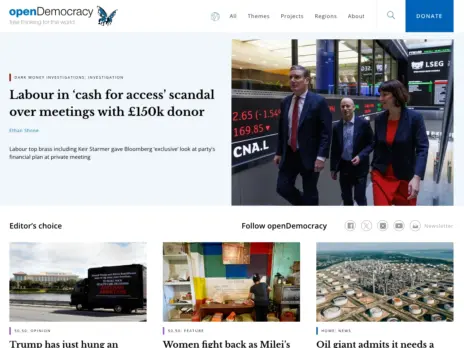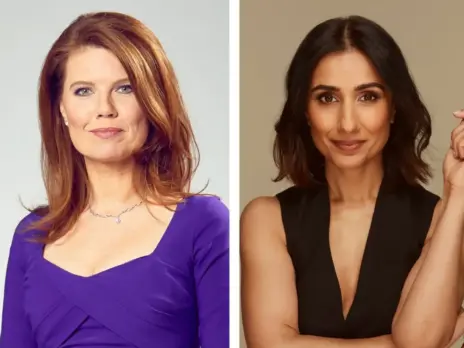If there was an annual award for ‘The most (apparently) honest statement by a broadcast news executive’ then Jeff Zucker, president of CNN, would have to be a front runner. Last week he warned his staff around the world, who are expecting job cuts: “We are going to do less and have to do it with less”.
James Harding, director of BBC News, would get a nomination for the slightly longer "Taking nearly £50m out of a well-run organisation that provides high quality news services that are trusted, relied upon and used by millions of people is an extremely difficult undertaking." But this wouldn't get many votes in newsrooms where £50 million would be a healthy budget in itself.
In truth, the most honest statement by most broadcast news organisations would be: “Let’s be clear, we need to do more for less”.
Next month the top people at Britain’s three largest broadcast news providers – BBC, ITN and Sky News – are in a session at the Royal Television Society’s London Conference: "Power, Politics and the Media". The session is called "Have I Got News for You?", although as the chairman of the session I preferred: "Can the UK’s broadcast news providers keep doing more for less?"
Harding has said: “The challenge is how to make BBC News even better, despite having less money.”
In his case the list of demands for "better" or "more" from the top of the BBC is daunting. The BBC Trust wants better mobile and online news, a wider news agenda and increased impact in current affairs. BBC Director-General, Tony Hall, wants the global audience for BBC News increased to 500 million; there are corporate diversity commitments to be delivered on ethnicity, gender and disability not to mention goals set by outside experts commissioned by the BBC Trust, such as more coverage of rural affairs.
All this while the unions at the BBC will be threatening industrial action and where a new focus on breaking exclusives like the Cliff Richard raid has proved controversial. There must be times when Harding reflects that working for one man, even if it was Rupert Murdoch, may have been easier.
For its main UK rivals, ITN and Sky News, the BBC’s problems may be an opportunity, but these two have pressures of their own. ITN’s customers – ITV, Channel Four and Five – are always looking for even better value for money and generous as BSkyB has traditionally been to Sky News, resisting BT’s growth in sports rights has to be a more of a priority.
The challenge that unites all broadcast news organisations was illustrated last week in another session on news, this time at the Edinburgh Television Festival.
Ratings research by Enders Analysis for a debate on how to engage younger viewers to news programmes showed that there are increasingly two different audiences which news producers have to serve with high quality output. At the opposite ends of the scale are the traditional TV news audience, predominantly over 55 years of age, and the 16-34 audience which is converting to or adopting online news use at a startling rate, especially since the arrival of smart phones and tablets.
Enders emphasises that whereas daily average TV viewing is currently three times higher among adults aged 55-plus than among adults age 16-34, the ratio is more like five or six to one when it comes to news. In the middle is the 35-54 audience which currently has a foot in both camps but whose future allegiance to TV news cannot be taken for granted.
At least younger audiences are interested enough in news and especially dramatic international news of which we currently have a surfeit, to go and find it, if not necessarily from ‘trusted’ news providers as the status quo love to bill themselves.
The long term challenge is the broadcasting equivalent of the 'analogue dollars, digital cents’ dilemma which has faced newspapers since they went online. The commercial currency of flagship TV news bulletins has always been blocks of time – normally half-hour slots – into which ads are inserted at traditionally high TV rates. Online news is a much more time-efficient way of consuming news, especially for those busy 35-54 year olds, and the associated revenue per consumer is lower.
For the next decade or so, this dual economy should survive and the existing producers will serve both markets. But they will be under pressure from funders to provide more and increasingly focused news for these different audiences, there will be many more challenger brands such as Vice News for that online audience and on present trends a point will come where news on demand overtakes sit back and watch news. Then a whole new debate will begin.
Stewart Purvis is Professor of Television Journalism at City University London and a former editor-in-chief and chief executive of ITN. The RTS London Conference ‘Power, Politics and the Media’ will take place at Kings Place, London on 9 September.
Email pged@pressgazette.co.uk to point out mistakes, provide story tips or send in a letter for publication on our "Letters Page" blog






